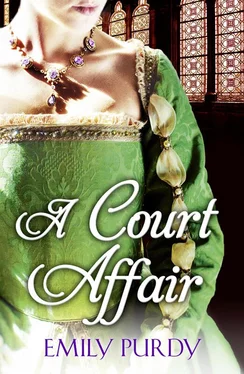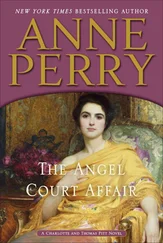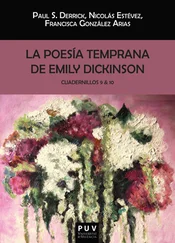Robert wanted something he couldn’t have, something that was not his right—my crown, to rule England. And I was guilty of the same, of wanting something I couldn’t have, that I had no right to, something that didn’t belong to me. I wanted a handsome, fun, virile man whose company I could revel and delight in, someone whom I could be free and just be me with, to just be Bess with, not Queen Elizabeth, someone who could never truly hold and chain and enslave me in the bonds of holy wedlock. I wanted to be free, but I wanted love, passion, and excitement; I wanted a lover, not a husband, and certainly not an ambitious schemer after my throne. I had known and loved Robert Dudley since I was eight years old, and I eagerly let myself believe his assurances that he and Amy were estranged, that the love betwixt them had long ago died; I didn’t think to look, to inquire, whether there was truth or lies behind his words. And even if I had, would I have released him, would I have let him go? My head says yes, but my heart says no. And a woman lies dead because of this game Robert and I have been playing with each other, this taut and tense flirtation, a wild dance, a chase, but at the end … only Death has made a conquest, a helpless and innocent bystander who unwisely but all too well also loved Robert Dudley, and with more right than I had to, as she was his lawful wife.
We are—we were—a triangle, with Robert at the apex and Amy and I on the sides, but at the bottom, I like to think two arms, two hands, stretched out to form that short, straight line. If I had been kinder and reached out an understanding hand to you, Amy, would you have reached out and taken it, or would you have bitterly, angrily, or fearfully pushed it away? Now, when it is too late to make amends, I want so much to stand before you, a living, breathing woman, not a cold, dead corpse, and touch your chin, to stop its trembling, look into your eyes, glistening like rare blue green jewels beneath the tears, and say, “You don’t have to be afraid of me, Amy; you never did.” Could I, if I had it to do over again, in all my glittering, regal, emerald green jealous, possessive pride have done that, and could you, timid, hurt, afraid, sick, and lonely, simmering—and rightfully so—with resentment, have believed and accepted? That is yet one more mystery the answer to which we may never know, just like how you met Death and how He came to leave you lying broken at the foot of that staircase. Did He hurl you down violently or lay you down gently? Will we ever know?
Cumnor Place, Berkshire, near Oxford Sunday, September 8, 1560
The hot bath feels heavenly—the billowing clouds of steam caress my face as they rise, like warm and comforting angels’ wings—but it has also sapped my strength. I feel light-headed, and a little dizzy and faint, with a persistent fear of falling should I dare attempt to stand. Part of me wants to give up, to surrender to the desire for sleep that never leaves me now, to lay myself down in the arms of Lethargy and never rise again. Now, each time I sleep, I feel as if I am floating out to sea, and the tether that binds my boat to the shore is stretching farther, growing frailer, and fraying more and more. Sometimes it scares me, and sometimes I don’t even care; I turn my back to the shore, stare straight ahead, and face the horizon boldly, ready to drift away and leave all my pains and woes behind me. Nausea stirs deep inside my stomach, like a serpent slowly uncoiling and waking grumpily from its slumber, just enough to make me aware of it but not so urgent as to send me grasping for the basin that is now never beyond my reach. But I say nothing of this to dear Mrs Pirto, who has attended me faithfully and lovingly for all of my eight-and-twenty years, as a nursemaid turned lady’s maid turned nurse again; it would only distress her, and she worries so about me; my failed marriage and failing health are the cause of most of the lines on that kind and careworn face and have turned her ebony hair to pewter and dingy silver.
From my bath I can see the sky, black and starless, through the high, arched windows, yet one more reminder that monks once made their home at Cumnor, for two hundred years or more, before King Henry ordered the dissolution of the monasteries and cast their cloistered inhabitants out to fend for themselves in a confusing and frightening, often unkind world. Before Cumnor fell into private hands, my spacious apartment was divided up into several stark and tiny monks’ cells furnished with only the bare necessities—a hard-as-a-board cot to sleep upon, with a chamber pot hidden underneath, and a crucifix looking down on its occupant from high upon the wall, to remind him that God is always watching us. Sometimes I fancy that I can still see their faint outlines, like the ghosts of those banished crosses haunting their former home. In spite of myself, I smile and blush a little at the thought that a monk’s cot might even have sat right here where I sit now, naked in my bath.
No doubt to the simple country folk hereabouts it seems like the height of extravagant folly or absurdity—like the French king’s mistress bathing in a tub filled with crushed strawberries to preserve her famous beauty—my rising when it is still as black as tar outside to take my bath. Many already think me a woman of a strange mind. But it’s a soothing and peculiar kind of peace, to sit in a candlelit bath while most of the world still sleeps, and I like it, and even though I am naked, I feel less vulnerable somehow. I like the quiet solitude of sitting in my bath, luxuriating in its warmth undisturbed, before the sunrise and the busy bustle of the day begins, hours before there are voices downstairs and outside the windows, the clatter of cart wheels and horses’ hooves in the courtyard, the laughing, joyfully raised voices of children playing, servants calling to one another, and footsteps and chatter in the Long Gallery outside my room where I used to walk up and down before I became so weak, and below stairs the gossip of servants and the crash and clang of kitchen pots. Though Cumnor is in reality four separate households under a shared roof, and I keep to myself most of the time, the other ladies who lodge here are more social creatures than I, and each thinks that she is the queen bee here, and over this entire hive reigns. There is the ancient Mrs Owen, the mother of Cumnor’s owner, Dr George Owen, who, like the mouse who bravely pulled a thorn from the lion’s paw, received it as a reward for his attendance on King Henry’s sore and seeping leg; and the plainspoken, sometimes tart-tongued Mrs Forster, wife of Sir Anthony Forster, my husband’s treasurer, who holds the current lease on Cumnor; and his mistress, the widow Mrs Oddingsells, one of those rare women who seem to grow more attractive and alluring as they age. My servants dart about Cumnor like busy bees doing whatever they are told to do regardless of who gives the commands; sometimes they don’t even have time for me, they are so busy doing Mrs Owens’s, Mrs Oddingsells’s, or Mrs Forster’s bidding. But I let it go; I am too tired to complain, it would take more strength than it is worth, and I just don’t care any more. Besides, I like being here with only Pirto to attend me, free from the fear that some well-intentioned or curious maidservant will come knocking and catch a glimpse of my pain-racked body and ruined left breast when Pirto opens the door, or will even boldly cross the threshold and ogle me, while pretending not to, so she can tell the others what she has seen, as she delivers a stack of fresh linens or a package from my husband containing a pretty piece of apparel to lift my spirits, or the latest doctor’s or witch’s brew calculated to restore my health or more likely hasten me to my grave if I were fool enough to drink it. With rumours rife in London and spreading throughout the land, and even across the sea, that Robert and his royal paramour mean to poison me, I would be a fool to let any potion he sent cross my lips. But the colours are pretty, and I sometimes set the glass bottles on my windowsill so that when the sun strikes them just right, rays of amber, ruby, emerald, and lemon light shoot into my room like a rainbow to fight the clammy gloom of Cumnor’s grey stone walls and floors.
Читать дальше












